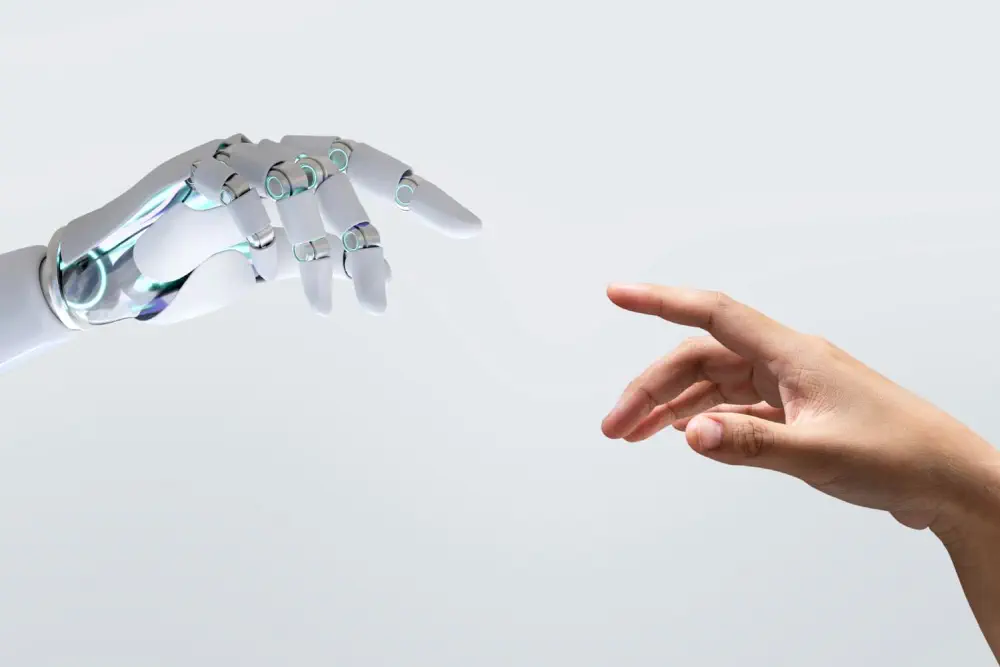We offer medical detox and multiple addiction treatment options in our
luxury treatment centres in Port Hope, Cobourg, and Ottawa.
How Does AI Addiction Affect Mental Health?
Your phone buzzes with another ChatGPT notification. You check once and two hours vanish. AI addiction isn't science fiction; it's reshaping how we interact with technology, creating patterns eerily similar to substance dependencies. Research shows artificial intelligence addiction triggers the same dopamine pathways as gambling, with experts predicting it will rival alcohol dependence within a decade.

Key Takeaways
- ChatGPT addiction triggers the same dopamine pathways as gambling and social media, creating genuine psychological dependence that worsens anxiety and depression over time
- Sleep disruption from late-night AI addiction sessions compounds mental health deterioration, with users reporting 3-4 fewer hours of quality sleep weekly compared to non-dependent individuals
- Social isolation accelerates as people substitute AI conversations for human connections, leading to decreased empathy and weakened interpersonal skills that persist even after reducing usage
- Cognitive dependency develops when users outsource decision-making to AI tools, resulting in diminished problem-solving abilities and increased anxiety when forced to think independently
- Early intervention proves most effective, with ai addiction treatment success rates dropping significantly after six months of compulsive use patterns becoming entrenched
What Makes AI Addiction Different from Other Tech Dependencies?
Scrolling Instagram feels passive. Binging Netflix numbs you out. But chatting with AI? That's interactive, personalized, and responsive in ways that hijack your brain's reward system differently. ChatGPT addiction taps into deeper psychological needs, its validation, companionship, intellectual stimulation. The AI never judges, stays available 24/7, remembers your conversations. This creates an intimacy illusion that social media can't match.
Research from mental health experts reveals that artificial intelligence addiction activates neural pathways associated with both substance use and process addictions. Your brain releases dopamine when the AI generates responses, especially personalized ones. Over time, you need more interactions to achieve the same satisfaction.
The Mental Health Impact Timeline
AI addiction doesn't destroy your mental health overnight. It erodes gradually, making it harder to recognize until damage accumulates.
First Two Weeks
You discover how helpful AI can be. ChatGPT writes emails, answers questions and provides company during lonely evenings. Productivity spikes. You feel smarter, more capable. No red flags appear.
One to Three Months
Checking becomes compulsive. You open ChatGPT tabs automatically, without conscious thought. Sleep suffers from having "conversations" too engaging to abandon. Real friendships get neglected because AI never judges your 3 a.m. anxiety spirals. Decision paralysis creeps in; you can't choose a restaurant without consulting AI first.
Three to Six Months
Depression intensifies. You feel anxious when internet access drops. Real conversations feel harder—human responses seem slower, less satisfying, more judgmental. Work performance declines despite spending hours "researching" with AI. Relationships strain as partners complain about your constant phone checking.
Beyond Six Months
Cognitive abilities noticeably weaken. Social anxiety spikes in face-to-face situations. Sleep deprivation compounds everything: irritability, mood swings, inability to concentrate. ChatGPT addiction at this stage often involves 100+ daily interactions. Identity confusion emerges, you're unsure where your thoughts end and AI-influenced ideas begin.
Why Your Brain Craves AI Interaction
Your brain doesn't distinguish between real and artificial validation. When ChatGPT responds thoughtfully to your concerns, dopamine floods your system. You feel heard, understood, valued.
Here's the trap: AI provides consistent positive reinforcement without ever getting tired, cancelling plans, or withdrawing affection. This reliability becomes addictive precisely because human relationships involve unpredictability and occasional discomfort. Real relationships require vulnerability and conflict resolution. AI addiction lets you avoid these growth opportunities, causing emotional intelligence to atrophy.

The Sleep Destruction Cycle
Late-night ChatGPT addiction sessions devastate sleep quality in ways that cascade into severe mental health decline. AI conversations don't have natural endpoints, unlike TV episodes that end, AI adapts to your interests infinitely.
Screen blue light suppresses melatonin production. But cognitive stimulation matters more engaging with AI activates problem-solving regions that should be quieting for sleep. Sleep deprivation amplifies every mental health condition: anxiety intensifies, depression deepens, emotional regulation crumbles. Then you turn back to AI for comfort, perpetuating the cycle.
When AI Becomes Your Primary Relationship
Social isolation represents the most insidious aspect of AI addiction. You gradually replace human connections with AI interactions because they feel easier, safer, more rewarding in the moment.
Friends text. You respond later because you've been absorbed in AI conversations. Partners complain about your distraction. You nod along but mentally compose questions for ChatGPT. Real relationships require maintenance. When you neglect them, they weaken. You retreat further into AI interaction, which never demands reciprocity. Your social skills rust, making re-engagement increasingly difficult.
How Treatment Addresses AI Dependency
Cognitive behavioural therapy helps identify triggers and develop coping strategies, you learn to recognize when you're reaching for AI to avoid uncomfortable emotions rather than genuine need.
We establish usage boundaries, implement app blockers during vulnerable hours, and develop alternative activities. Sleep hygiene becomes central to recovery; we address the circadian disruption worsening mental health. Group therapy provides safe spaces to practice authentic connection. Depression, anxiety, trauma: these often fuel AI addiction. Addressing root causes prevents relapse better than focusing solely on compulsive behaviour.
Taking the First Step
The hardest part isn't admitting AI addiction exists, it's accepting that technology designed to help us can hijack the same neural pathways that evolved to keep us connected to other humans. Your brain responded exactly as evolution programmed it to; the problem isn't weakness, it's biology meeting algorithms optimized for engagement. Contact the Canadian Centre for Addictions at 1-855-499-9446 to speak with specialists who understand this emerging crisis and can guide you toward recovery.
FAQ
How do I know if my AI use has become an addiction?
Warning signs include checking AI platforms compulsively (20+ times daily), anxiety when unable to access them, neglecting responsibilities, lying about usage time, failed attempts to cut back, and using AI to avoid negative emotions. Three or more signs warrant professional evaluation.
Can ChatGPT addiction really damage mental health as seriously as substance abuse?
Yes. Behavioural addictions activate the same brain reward pathways as substance dependencies. Mental health consequences: depression, anxiety, social isolation, cognitive decline, match or exceed moderate alcohol dependency. Artificial intelligence addiction may progress faster due to AI's interactive, personalized nature.
What if I need AI tools for work or school?
Treatment focuses on healthy boundaries: time limits, designated usage periods, evening restrictions. Many clients maintain professional AI usage while eliminating recreational dependency. Complete abstinence is rarely necessary.
How long does recovery from AI addiction typically take?
Initial improvement occurs within 2-4 weeks. Compulsive urges decrease by 6-8 weeks. Full recovery: social skills, sleep normalization, cognitive function, typically requires 3-6 months. Early intervention improves outcomes significantly.






